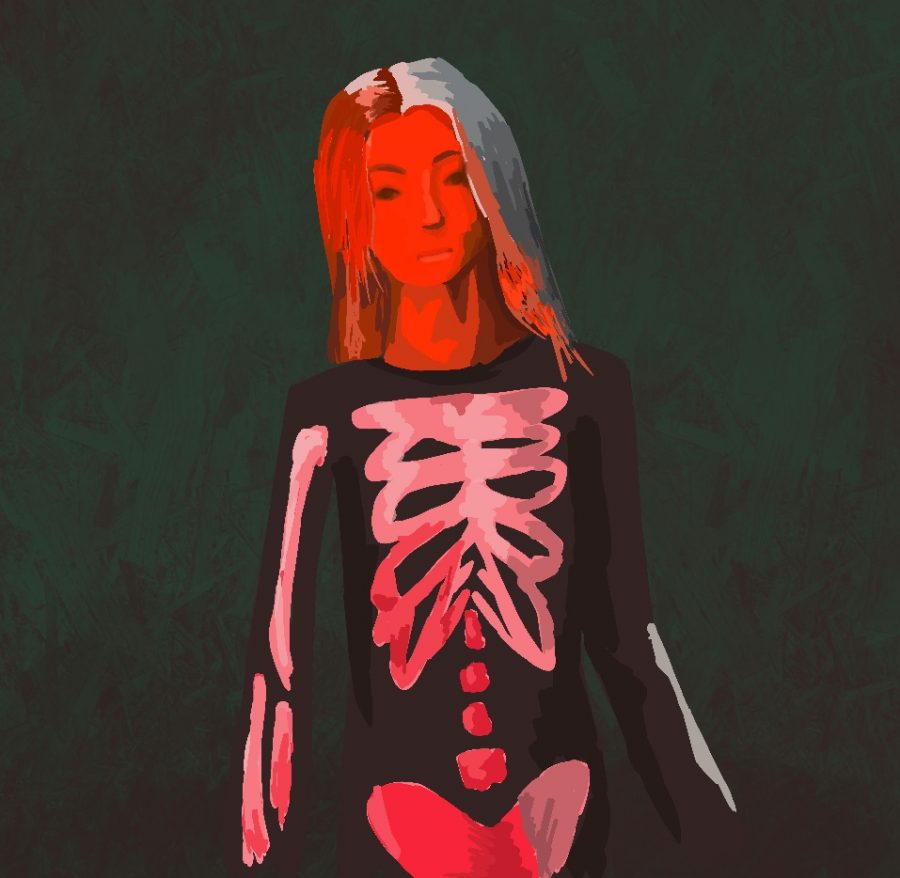Phoebe Bridger’s “Punisher”: The Best Album of the Year
December 1, 2020
Rating: 5/5 Falcons
Indie rock singer Phoebe Bridgers is no stranger to intense feelings. Her 2017 debut album Stranger In The Alps saw her in somber circumstances: getting out of an abusive relationship and singing at a funeral for an old friend who had passed away from an overdose. Nearly three years later, Bridgers’ sophomore LP Punisher doesn’t vary from its predecessor in its heavy emotional weight, but it feels like a graduation into a sound that fits her perfectly. The final product is one of the most intimate, sonically cohesive, and lyrically exemplary works of our generation.
Conceived mainly while Bridgers was on tour, the 11-track album is a window into Bridgers’ psyche without any filter. The mesmerizing “Garden Song” recounts a recurring nightmare she had over tour, which bleeds into the following track “Kyoto,” a falsely uptempo song about Bridgers hating her life on tour, then arriving home and hating her life there too. This theme of duality—the idea that you can want something and change your mind once you have it—is paralleled throughout the album. It’s present on the hypnotic “Moon Song,” when Bridgers’ openly declares “We hate ‘Tears In Heaven’ / But it’s sad that his baby died,” referencing the 1992 track by controversial English singer Eric Clapton whose son had died. “ICU” similarly follows this theme, with Bridgers reminiscing about an ex-relationship saying, “I get this feeling whenever I feel good / It’ll be the last time / But I feel something when I see you now.” She finds duality in both dreading her existence and still grasping onto hope in her future. For Bridgers, it’s not about being indecisive, it’s the mature reflection of being able to exist between two truths.
Subdued and relaxed, Bridgers’ voice is often understated in her songs—but quiet is not a term that fully captures the essence of her music. Bridgers’ stark and candid thoughts are often loud enough to speak for themselves without the aid of too much backing melody. “I want to believe / Instead I look at the sky and I feel nothing,” Bridgers bluntly confesses on “Chinese Satellite,” referencing her struggle with faith. Bridgers later admits that although she doesn’t believe in an afterlife, she would suppress her beliefs if there was any indication of one, singing “You know I’d stand on the corner / Embarrassed with a picket sign / If it meant I would see you when I die.” It’s this poignant specificity featured in her writing that makes her craft stand out, which becomes almost uncomfortably relatable to many. The stunningly haunting title track “Punisher” conveys her insecurity of being annoying to the people she admires most, in her case the late singer Elliott Smith, of whom she is an avid fan of. The term ‘punisher’ references somebody who keeps talking to you in a conversation that you want to get out of, no matter how sweet the person is—in Bridgers’ instance, if she ever met Elliott Smith, she would say too much and scare him off.
The album has few cheerful moments, even the irresistible kick drums featured on “Kyoto” are a façade for its solemn lyrics. However, it’s on the penultimate track, “Graceland Too,” a dreamy Nashville-written country-folk ballad, where Bridgers finds some sort of peace with her life. Reunited with her “boygenius” collaborators Julien Baker and Lucy Daucus on the stunning background vocals, Bridgers sings about her hope that one day she will be able to be happy around people who feel emotions as intensely as she does.
The concluding track, “I Know The End,” fittingly finishes the album with an evocative scream featured after an intense build up of horns and strings that sound like a nod to Sufjan Steven’s Illinois, and ultimately leave listeners wanting more. With warm instrumentals and intimate lyrics, Punisher is the perfect winter album, and as the seasons turn over, do yourself a favor by grabbing a warm drink and bundling up while listening to this musical triumph.










